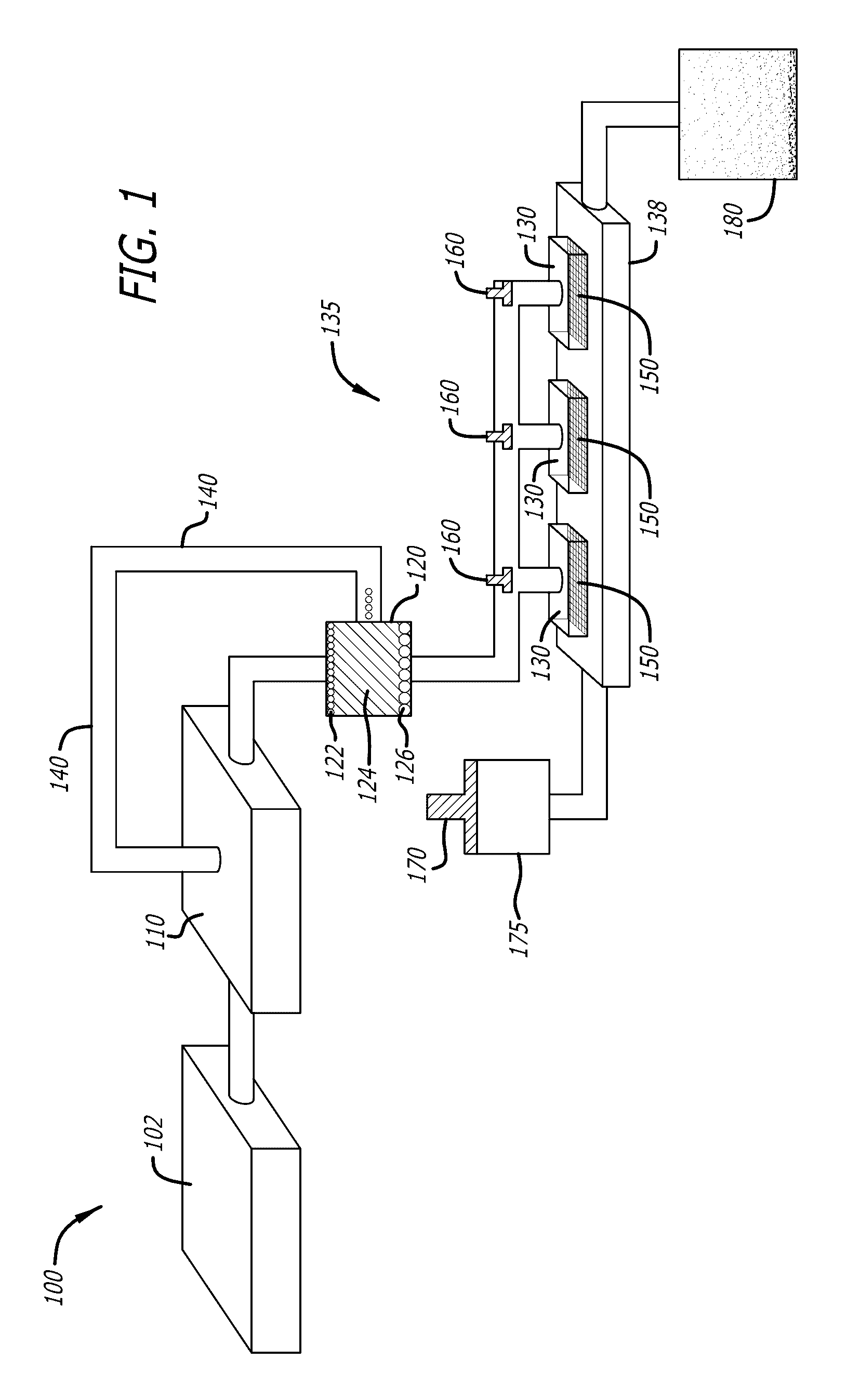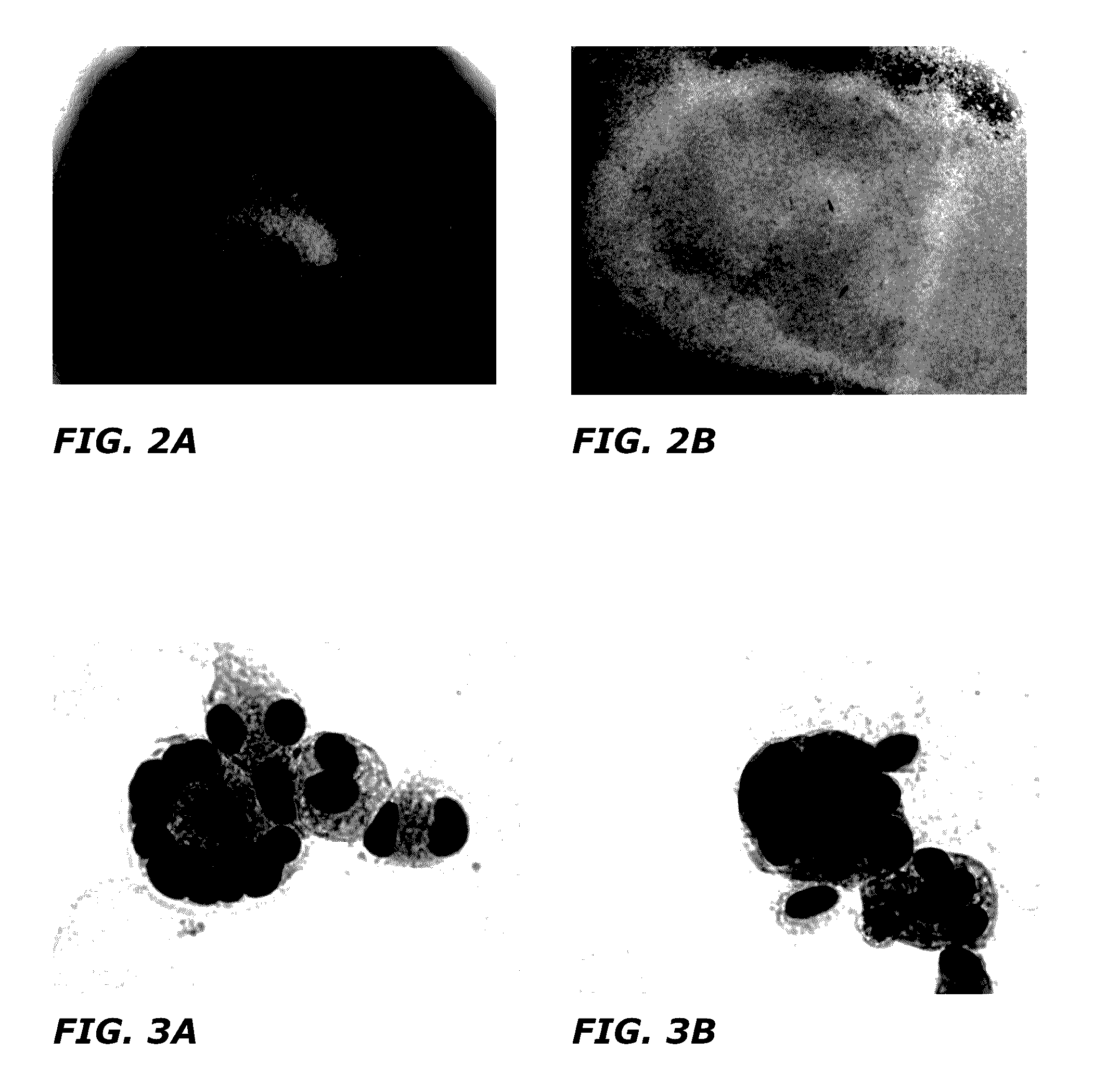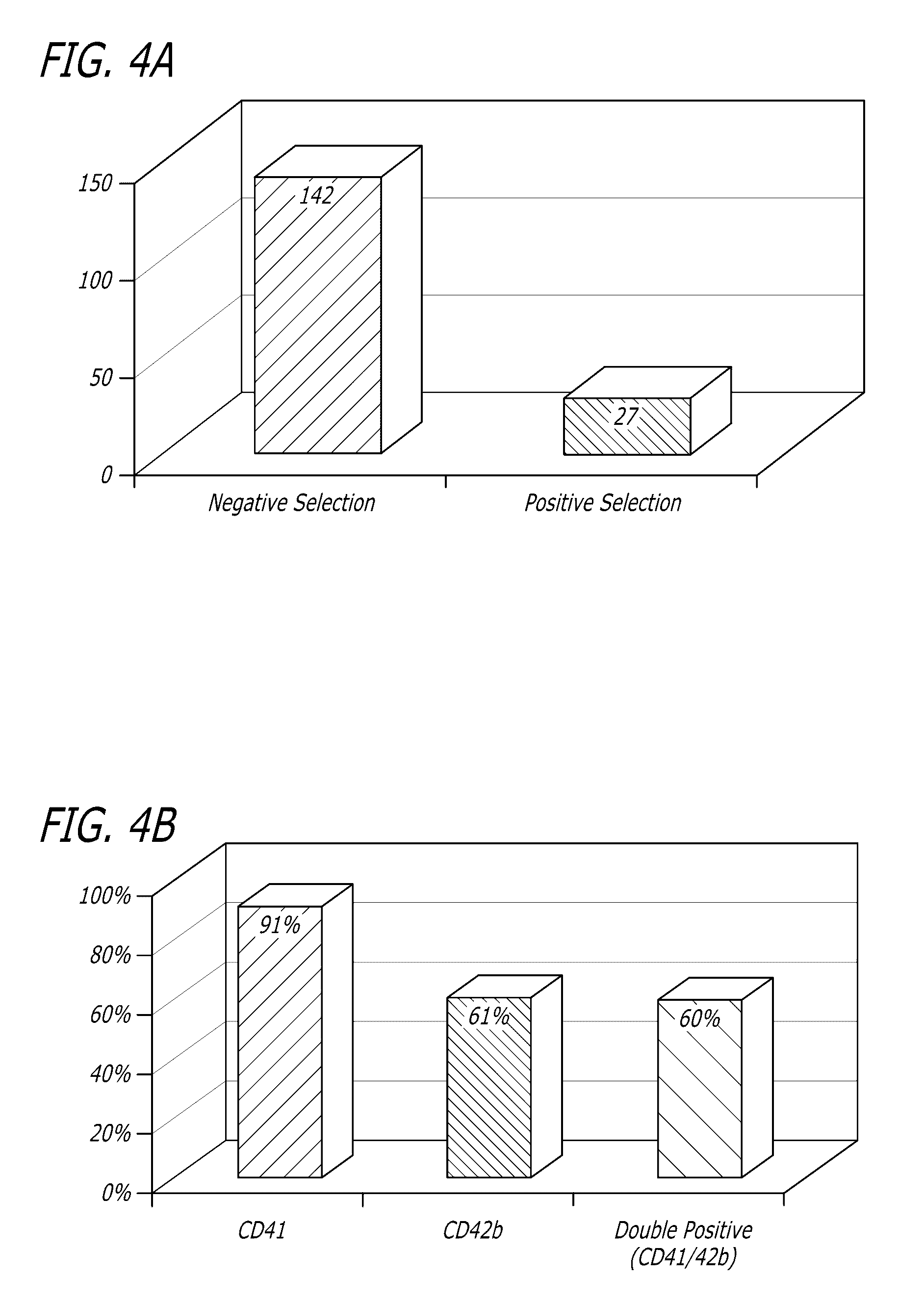Megakaryocyte and platelet production from stem cells
a stem cell and megakaryocyte technology, applied in the field of megakaryocytes and platelet production from stem cells, can solve the problems of excessive bleeding, long and costly platelet extraction process, and yield far too low for clinical use, and achieve the effect of improving platelet releas
- Summary
- Abstract
- Description
- Claims
- Application Information
AI Technical Summary
Benefits of technology
Problems solved by technology
Method used
Image
Examples
example 1
Isolation and Culture of Stem Cells
[0082]Platelets can be derived from different sources of stem cells. Described herein are methods for selecting and growing stem cells from different sources.
[0083]Human Embryonic Stem Cells.
[0084]HeSC are derived from cell lines including, but not limited to, H1, H7, H9, HuES-3, MA01, MA40 and MA09. The HeSC are differentiated into hemangioblasts / blasts cells with the addition to serum-free medium of bone morphogenic protein 4 (BMP-4), vascular endothelial growth factor (165aa, VEGF165), stem cell factor (SCF), thrombopoietin (TPO) and FLT-3 ligand (FLT-3l). The cultured hemangioblasts can be co-cultured with mesenchymal stem cells (MSC) and are finally differentiated into megakaryocytes with cytokines such as TPO, SCF, IL-6, IL-9, IL-11, VEGF, and fibroblast growth factor (FGF).
[0085]Induced Pluripotent Stem Cells.
[0086]IPSC are derived from somatic and mature cells and transfected with genes that code transcriptional factors known to maintain pl...
example 2
Effect of CD34+ Negative Selection on Megakaryocyte Expansion
[0095]Umbilical cord blood was obtained and the CD34+ cells were selected by negative selection (ROSETTESEP®) or positive selection. The positive selection method is based on the separation of stem cells using beads and magnetic columns. Beads attach to specific stem cell surface markers and are positively selected with the magnetic columns.
[0096]After negative selection, 1×105 total nucleated cells (TNC) and 7×103. CD34+ cells were plated in 24 well plates at a concentration of 2×105 cells / ml (FIG. 2). STEMSPAN® medium (tissue culture medium, STEMCELL® Technologies) was used for culture with added thrombopoietin (50 ng / ml) and stem cell factor (50 ng / ml) as cytokines. Fresh medium was added to the culture every 3 days and the cells were replated on day 5 of culture. The culture was carried out at 37° C. with 5% CO2 and ambient oxygen. The cultured cells are depicted in FIGS. 3 and 4. The cells were analyzed by flow cytome...
example 3
Driving Proplatelet Formation with the Cytokine SDF-1α
[0100]The cytokine SDF-1α mobilizes the mature megakaryocyte out of the bone marrow niche and is used to transition the mature megakaryocytes into an optimal culture environment. Initially, the cells are physically transferred from the maturation culture to a new culture dish containing SDF-1α within a 3D matrix. The SDF-1α lures the mature megakaryocytes into the 3D matrix. Exemplary 3D matrices include, but are not limited to, gelatin, MATRIGEL®, ALGIMATRIX®, polystyrene and polyester mesh. The effects on megakaryocyte survival and proplatelet formation are measured. The proplatelet formation matrix is then subjected to conditions suitable for proplatelet formation.
PUM
| Property | Measurement | Unit |
|---|---|---|
| diameter | aaaaa | aaaaa |
| time | aaaaa | aaaaa |
| time | aaaaa | aaaaa |
Abstract
Description
Claims
Application Information
 Login to View More
Login to View More - R&D
- Intellectual Property
- Life Sciences
- Materials
- Tech Scout
- Unparalleled Data Quality
- Higher Quality Content
- 60% Fewer Hallucinations
Browse by: Latest US Patents, China's latest patents, Technical Efficacy Thesaurus, Application Domain, Technology Topic, Popular Technical Reports.
© 2025 PatSnap. All rights reserved.Legal|Privacy policy|Modern Slavery Act Transparency Statement|Sitemap|About US| Contact US: help@patsnap.com



